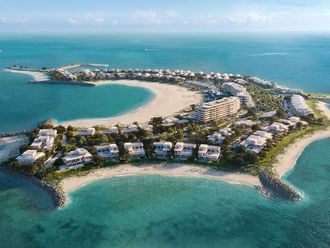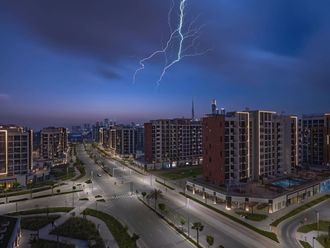
If you are a non-Muslim expat or an overseas investor with assets in Dubai or Ras Al Khaimah but residing in your home country, you better get a will done to ensure smooth inheritance to your chosen beneficiaries. Without a will, chances are that your assets will be passed on to specific blood relatives as per the local inheritance law that follows Sharia principles of pre-determined allocation.
“In the absence of registering a will, then you will be looking at Sharia that will distribute that property to specific blood relatives in predetermined proportion,” says Sean Hird, director of DIFC Wills Service Centre (WSC).
Established in 2015, the DIFC Wills Service Centre provides a system whereby non-Muslims can register a will at the DIFC Courts, Dubai’s international English language commercial courts.
Many expats who live in the regional Islamic countries — and often outnumber the locals — may not be aware that they are governed by Sharia when it comes to inheritance, although their home countries may have a different set of laws. However, in an effort to enhance Dubai as a destination for foreign investment, the government, through a federal law, has allowed non-Muslims to opt out of Sharia and chose their home country law in the matter of heritance.
“It’s a government initiative that’s responding to the needs of those investing and living in Dubai and RAK. It is an initiative that provides freedom of choice and certainty of outcome in terms of distribution that you get,” says Hird, adding that this makes Dubai even more competitive and attractive as an international property investment destination, as it creates a level playing field in respect to inheritance.
To make things easier for people who are non-residents and can’t visit in person to register a will, the WSC also offers first-of-its-kind virtual registry options whereby everything — right from creation and registration to witnessing — can be done online using video-link, and identity verification offered through VFS Global centres spread across 129 countries.
Here are five things you should know about non-Muslim wills and why you must invest in it:
1. Dubai, being a Muslim country, follows Sharia under which inheritance arrangements are pre-determined — specific blood relatives are given predetermined allocations, with no discretion.
2. But non-Muslim residents and non-residents with assets in Dubai and RAK have the option of opting out of Sharia through a will and chose their home country laws for inheritance arrangements.
3. Wills can be made using freely available will templates on the WSC website after paying relevant registration fees, which range from Dh5,000 to Dh7,500 depending on the template used. Wills can be registered with the DIFC Court from anywhere in the world using a virtual registry facility via video-link, using mobiles, laptops or computers.
4. There are currently five types of DIFC wills: guardianship will, property will, free zone company will, financial assets will and the full will. Except for the full will and the guardianship will, all other wills can be registered online at the moment.
5. There is no restriction on what types of asset can be covered by the DIFC Will, as all moveable and immovable assets — from apartments, land and cars to company shares and monies in bank accounts — can be included.
Take on the challenge
Making a will is often a sensitive topic that people avoid. Dawn Metcalfe, Dubai-based trainer and coach working with DIFC Wills Service Centre tells you how to move forward with his list of the top five reasons why people avoid making such big decisions — such as writing a will. Here’s how to stop procrastinating, be confident in the conversation and move forward.
1. Better things to do. Dubai is awash with distractions in both the real and virtual worlds. Why get on with making big real-life decisions when we could be absorbed with WhatsApp, Snapchat, Instagram or Facebook?
Solution: Close down your social apps: use your browsing time get some life admin tasks done.
2. Unpleasant reality. Making a will or buying life insurance might just seem too much trouble — boring, involving proper and important decisions.
Solution: Break big tasks down into smaller, manageable chunks. Reward yourself with a break once you have completed a pre-set number of task chunks. Then go on to the next level.
3. Timing. Procrastination comes when you need to make a lot of effort now to gain at some point way ahead in the future, like a smoker who’s always about to quit after “one last cigarette”.
Solution: Find a way to tell yourself that the benefits start immediately. The reward for the short-term effort needs to come sooner rather than later, at least in your mind.
4. Anxiety. Avoidance is a well-known consequence of anxiety. Delays happen when we avoid facing long-term challenges. Fear of failure often leads to procrastination.
Solution: Find ways to reduce stress and understand that your delays are often down to your fear of failing. Just do it.
5. Self-confidence. Be aware that, by avoiding to take on challenging tasks, you are chipping away at your own self-confidence. The more confident you are, the more persistent you are.
Solution: Take on the challenge as quickly as possible. When you are successful, then you won’t only complete the task, but also boost your precious self-confidence.
Dawn Metcalfe is the author of the book Hard Talk. The views expressed here are her own.












